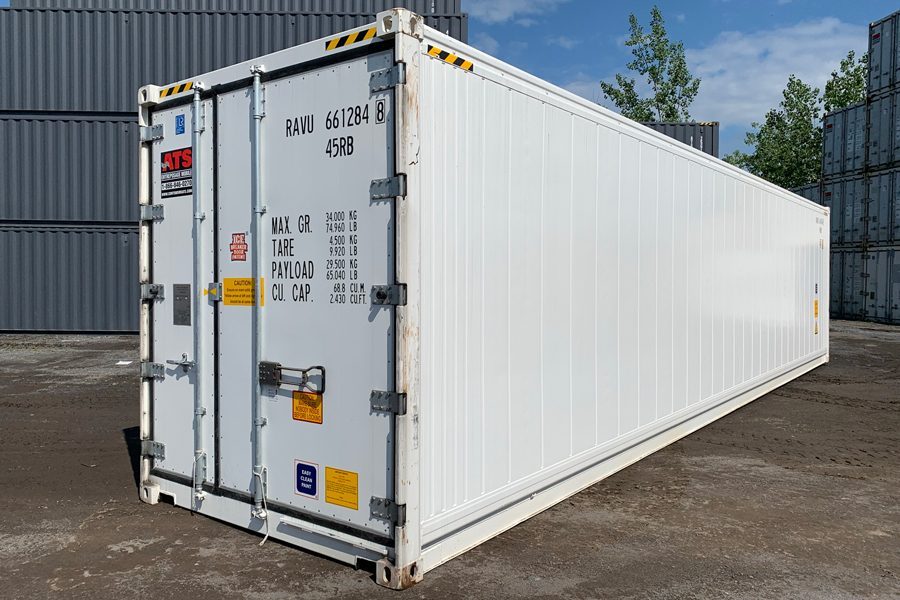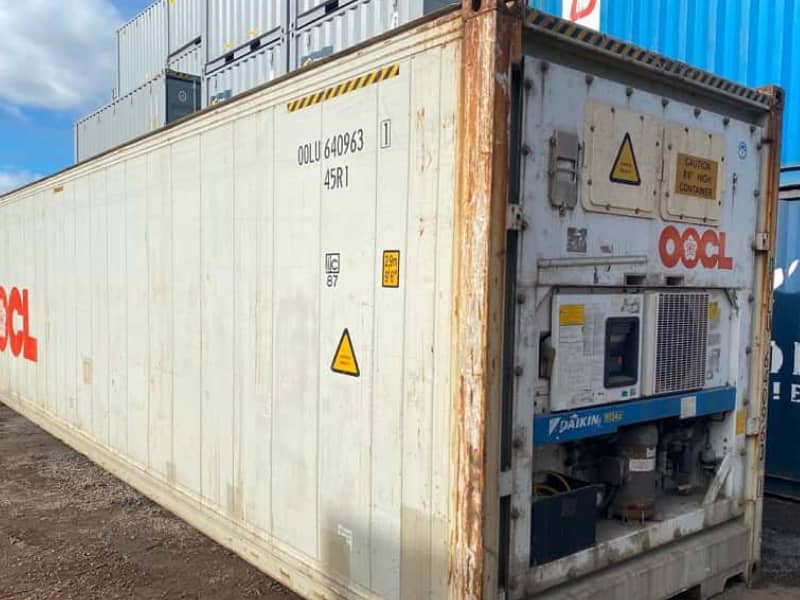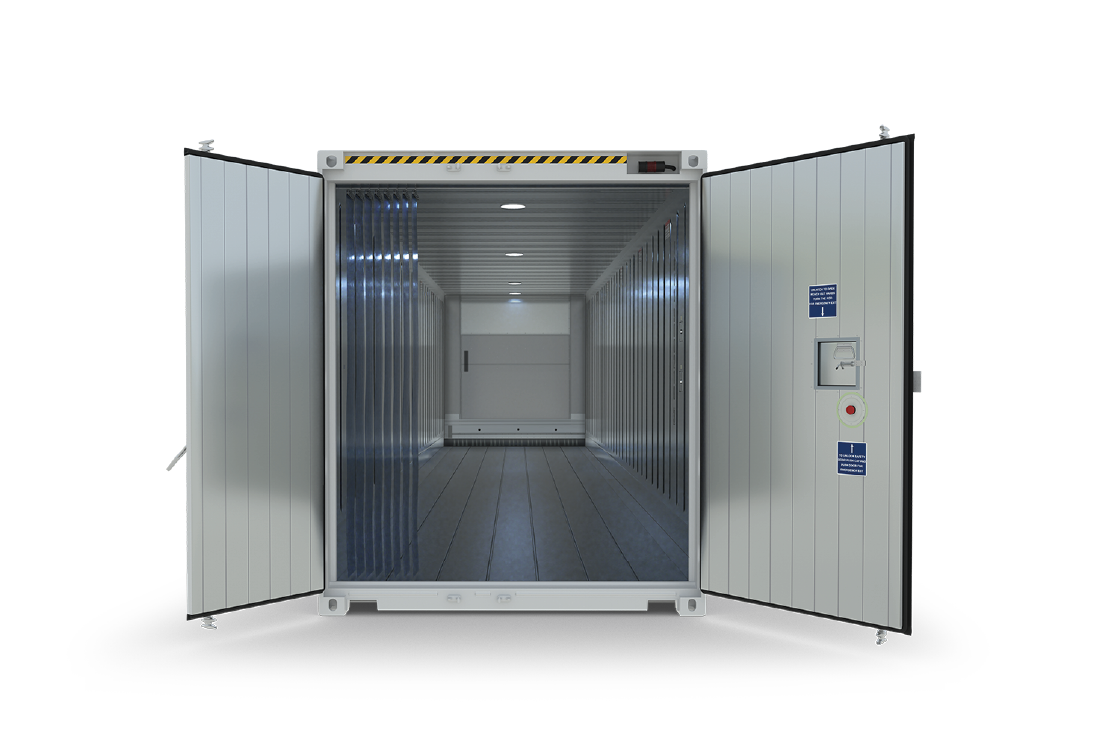All About Shipping Containers: Exploring Their Convenience and Practical Applications
Shipping containers have actually transcended their initial objective of freight transportation, becoming multifunctional possessions in different fields. Their modular layout allows for innovative applications, from affordable housing solutions to mobile offices. Furthermore, they function as pop-up retail stores and assistance sustainable methods. This improvement questions regarding their possible effect on urban development and area involvement. What various other opportunities might emerge from these adaptable frameworks?
The Advancement of Shipping Containers: From Transportation to Improvement
As the worldwide economic climate broadened in the mid-20th century, shipping containers became a revolutionary option to the inadequacies of standard cargo transport. These standard metal boxes allowed for smooth loading and unloading, considerably lowering the moment and labor associated with Shipping goods. The intro of containers transformed ports right into reliable hubs of worldwide trade, facilitating the surge of worldwide Shipping networks.
Over time, the layout and innovation of Shipping containers evolved, bring about technologies such as cooled containers for perishable items and specialized containers for harmful materials. The convenience of Shipping containers prolonged past transportation, inspiring brand-new applications in various sectors. They became indispensable to logistics, promoting just-in-time production and worldwide supply chains.
This advancement noted a change in how items were moved and saved, setting the phase for further expedition of their potential in varied sectors, consisting of building and construction and retail.
Ingenious Real Estate Solutions: Container Homes
An expanding variety of home builders and engineers are turning to shipping containers as a sensible solution for sustainable and cost effective housing. These frameworks offer an one-of-a-kind combination of durability and flexibility, making them an eye-catching option for various property demands. Delivering containers can be changed right into cozy homes, environment-friendly sanctuaries, and even multi-unit dwellings, permitting cutting-edge layouts that optimize space and resources.

As urbanization remains to climb, container homes present an opportunity to attend to real estate scarcities while advertising lasting living techniques. This ingenious strategy challenges conventional ideas of home building and construction and leads the way for a new age in real estate remedies.
Mobile Workplaces: The Rise of Container Workspaces
With the increasing demand for versatile workplace, mobile workplaces created from delivering containers are obtaining appeal amongst businesses seeking affordable and adaptable options. These repurposed containers use an one-of-a-kind mix of longevity and mobility, making them ideal for companies that require on-site or short-lived work spaces. The modular design allows for easy modification, making it possible for organizations to customize the interior layout to their specific demands, whether for joint job, personal offices, or conference locations.
Moreover, shipping container offices can be quickly released to different locations, streamlining procedures for building sites, occasions, or remote jobs. Their environment-friendly qualities also interest organizations concentrated on sustainability, as they promote reusing and effective use products. As remote work remains to develop, the convenience of mobile offices made from delivering containers settings them as a useful remedy for contemporary business difficulties, enhancing efficiency while decreasing above expenses.
Retail Revolution: Shipping Containers as Pop-Up Shops
Delivering containers are changing the retail landscape by working as cutting-edge pop-up shops that catch customer attention and boost brand exposure. Their modular layout permits very easy customization, making them excellent for different retail principles, from style stores to artisanal food markets. used 40ft cold storage containers for sale. Merchants profit from the flexibility of Shipping containers, allowing them to establish up temporary places in high-traffic locations, festivals, or city spaces where typical shops might be not practical
These pop-up shops not only supply an unique shopping experience but likewise foster area engagement by attracting diverse clients. Brand names can trying out brand-new markets without the long-term commitment of an irreversible lease. Additionally, the striking aesthetic of repurposed containers frequently pulls in interested clients, developing a buzz around the brand name. As the retail setting remains to evolve, shipping containers stand apart as a dynamic service for services seeking to introduce and link with consumers.
Sustainable Practices: Eco-Friendly Uses for Shipping Containers

Repurposing Shipping containers prolongs beyond retail technology, using a sustainable option for numerous green applications. These containers can be changed into functional rooms such as homes, offices, and recreation center, greatly minimizing the requirement for brand-new building products. By using existing structures, the carbon impact associated with standard building techniques decreases.
In addition, shipping containers can act as metropolitan yards or greenhouses, promoting neighborhood agriculture and improving food safety and security. Their modular layout permits very easy stacking and plan, creating flexible rooms for community efforts, such as farmers' markets or instructional workshops.
Moreover, containers can be outfitted with sustainable power sources, such as solar panels, to develop off-grid centers. This flexibility not just enhances land use but likewise encourages lasting living practices. Generally, the eco-friendly applications of Shipping containers highlight their possible to contribute positively to environmental sustainability while attending to the expanding need for innovative, budget friendly spaces.
Frequently Asked Concerns
What Are the Dimensions of Standard Shipping Containers?
The common Shipping container measurements commonly consist of 20 feet in length, 8 useful reference feet in width, and 8.5 feet in height for the routine design, while a 40-foot version preserves the exact same size and height.
Just how much Does a Delivery Container Commonly Price?
The typical price of a delivery container varies substantially, usually varying from $2,000 to $5,000 relying on market, condition, and size demand. Prices might click rise and fall based upon place and extra features needed by buyers.
Can I Customize a Delivery Container for My Requirements?
The possibility of customizing a delivery container exists, enabling individuals to tailor measurements, attributes, and performance according to particular requirements - used 40ft cold storage containers for sale. This adaptability makes Shipping containers ideal for different applications, improving their overall energy and charm
What Is the Lifespan of a Shipping Container?

Are Shipping Containers Safe for Food Storage Space?
The safety and security of Shipping containers for food storage space relies on their problem and products. Appropriately cleaned up and preserved containers can be risk-free, but potential chemical residues and impurities have to be extensively dealt with before use.
Over time, the layout and modern technology of Shipping containers progressed, leading to advancements such as cooled containers for perishable goods and specialized containers for unsafe products. The adaptability of Shipping containers expanded past transportation, learn the facts here now inspiring brand-new applications in different industries. Repurposing Shipping containers extends past retail advancement, providing a lasting option for different environment-friendly applications. The common cost of a delivery container varies substantially, normally ranging from $2,000 to $5,000 depending on condition, dimension, and market demand. The opportunity of customizing a delivery container exists, enabling people to tailor dimensions, features, and performance according to specific needs.